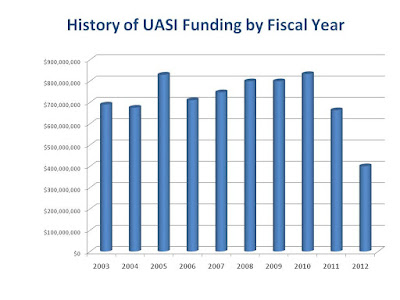Many DHS Grants are Effective and Have Proper Oversight

Today's blog takes a twist on a recent piece that was published on the Homeland Security Newswire and repeated on several UASI and Emergency Management mail lists and blogs . The title of this piece was " Many DHS grantsineffective, lack proper oversight " and it was based on an interview with David Muhlhausen, a research fellow in empirical policy analysis at the Heritage Foundation . As our blog's title clearly indicates, we do not agree with this premise. And, we question the Heritage Foundation's constant criticism of homeland security grants and efforts. First some background on where this is coming from. The Heritage Foundation is a conservative American think tank based in Washington, D.C. Heritage's stated mission is to "formulate and promote conservative public policies based on the principles of free enterprise, limited government, individual freedom, traditional American values, and a strong national defense." The fo...


